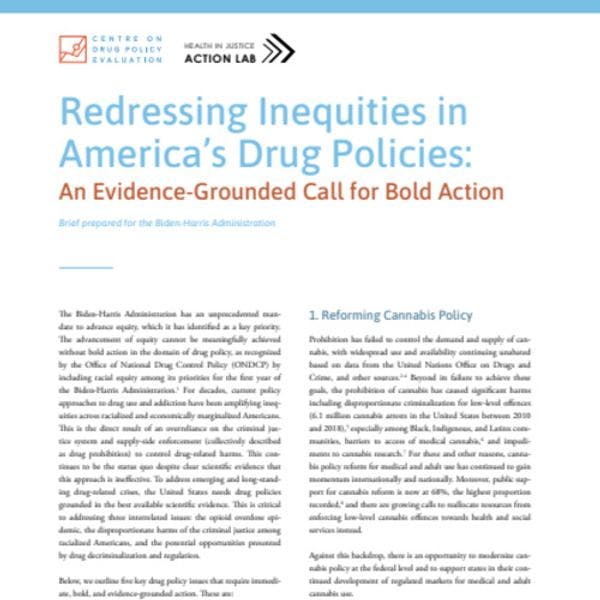Center on Drug Policy Evaluation
Redressing inequities in America’s drug policies: An evidence-grounded call for bold action
By Center on Drug Policy Evaluation
The Biden-Harris Administration has an unprecedented mandate to advance equity, which it has identified as a key priority. The advancement of equity cannot be meaningfully achieved without bold action in the domain of drug policy, as recognized by the Office of National Drug Control Policy (ONDCP) by including racial equity among its priorities for the first year of the Biden-Harris Administration. For decades, current policy approaches to drug use and addiction have been amplifying inequities across racialized and economically marginalized Americans.
This is the direct result of an overreliance on the criminal justice system and supply-side enforcement (collectively described as drug prohibition) to control drug-related harms. This continues to be the status quo despite clear scientific evidence that this approach is ineffective. To address emerging and long-standing drug-related crises, the United States needs drug policies grounded in the best available scientific evidence. This is critical to addressing three interrelated issues: the opioid overdose epidemic, the disproportionate harms of the criminal justice among racialized Americans, and the potential opportunities presented by drug decriminalization and regulation.
Below, we outline five key drug policy issues that require immediate, bold, and evidence-grounded action. These are: 1. Reforming cannabis policy; 2. Removing obstacles to harm reduction for overdose and infectious disease prevention; 3. Increasing access to medication for opioid use disorder; 4. Evolving drug courts; and 5. Elevating the use of discretion in drug law enforcement.
Downloads
Topics
Regions
Related Profiles
- World Health Organization (WHO)
- Office of National Drug Control Policy (ONDCP)
